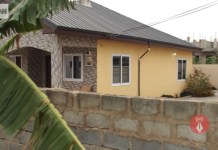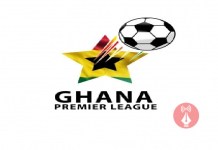The Ghana Independent Broadcasters Association (GIBA) has sued the National Communications Authority (NCA) and the Attorney General’s (AG’s) Department over the NCA’s decision to introduce a regime that will essentially censor broadcasting content.
The controversial regime called Conditional Access for Free-to-Air TV broadcasters has been described by GIBA as an attempt to suppress free press as protected in the 1992 constitution.
In a writ filed at the Supreme Court on Tuesday January 28, 2020, GIBA seeks a number of reliefs including that the Conditional Access System (CAS) was an unnecessary restraint on the establishment and operation of private media as enshrined in Article 162(3) of the 1992 Constitution.
The CAS was introduced by the NCA as a mandatory requirement which broadcasters are blocked by the government unless certain criteria have been met before access to content is granted the viewing public.
GIBA also seeks a declaration that the blockage of media content of Free-To-Air broadcasters is unconstitutional and that the NCA should remove the CA that encrypts or blocks contents of Free-To-Air television channels from being broadcasted.
It is recalled that the Ministry of Communications through its agency the NCA, since 2017 have been attempting to implement dramatic changes to television broadcast sector with the introduction of systems of control for which GIBA frowned upon due to its ability to lockdown the liberalized airwaves and send the nation back to the dark days of monopolized and controlled media.
For some time now, the GIBA and the Ministry of Communications have disagreed over the introduction of the Conditional Access System even after the Ghana Standards Authority has made it clear that, by the Standards the CAS cannot be said to be mandatory for free-to-air receivers.
Subsequently, GIBA welcomed the standards set by the Ghana Standards Authority and accused the Ministry of Communications of doctoring the Ghana Standards Authority document which instructed the broadcast industry to abide by the mandatory requirements for the reception of all TV programmes carried on the nation’s free-to-air digital broadcasting facility.
GIBA argued that as bona fide owners of the broadcast contents, they have the absolute right and discretion over the decision to convert their press services programs into a Pay TV service and that neither the NCA nor the oversight Ministry has the right to decide on the shape and form that their contents should be offered to the general public. GIBA believes that, the choice of free and unhindered access to their content was made with approvals, when they applied to the NCA for authorization to use their regulated spectrum for the delivery of Free-to-Air media and press services programs to the people.















